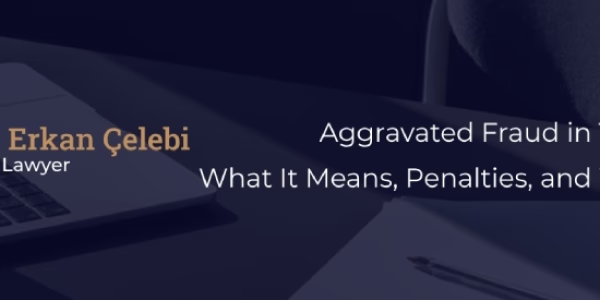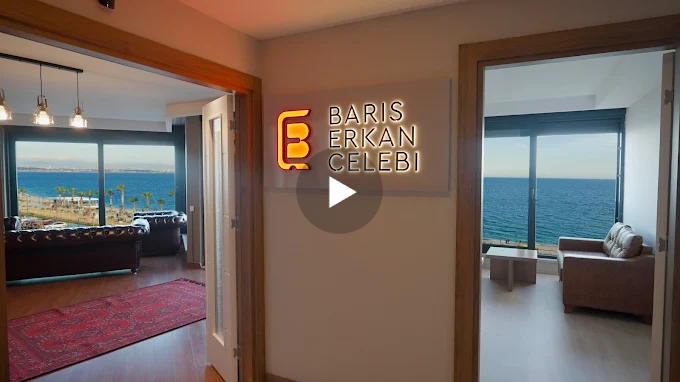Introduction
If you are a foreign investor planning to purchase real estate in Turkey in 2025, this guide will provide you with information on the latest legal updates, property restrictions, and all fees you need to include in your budget.
Table of Contents
Overview of Recent Changes (2025)
Foreign Ownership Limits
- Land Size: As of January 2025, the maximum amount of land that a foreigner can own within municipal boundaries has been increased from 25 da to 30 da (3 hectares).
- Strategic Areas Exception: In provinces deemed strategic (e.g., near military zones), foreigners must obtain special permission from the Ministry of Environment and Urbanization to purchase land.
New Due Diligence Requirements
- Title Search: Notaries are now required to verify that earthquake certificates are valid prior to title registration.
- Building Inspection Report (BIR): Mandatory for buildings older than five years. Sellers are required to provide a certified BIR confirming structural safety.
Step-by-Step Purchase Process
Find a Licensed Real Estate Agent
- Verify License: Ensure your agent is registered with the Turkish Real Estate Brokerage Association (TÜREB).
Make sure to secure a preliminary listing agreement—this way, you’ll have the sole right to negotiate on the property you’ve chosen.
Obtain a Tax Number and Open a Bank Account
- Tax Number: Apply to any local tax office with your passport.
- Bank Account: Required for money transfers and fee payments. Many banks now offer English language support.
Note: If you are doing this for the first time, consult an expert or a lawyer.
Sign a Reservation Agreement
- Deposit: Typically 3–5% of the agreed price. This binds both parties while you conduct inspections and paperwork.
Conduct Technical & Legal Due Diligence
- Building Inspection Report (BİR): Commissioned by a certified engineer—cost ≈ 2 000 TRY.
- Title Deed Research: Notary fees for preliminary title deed checks are capped at 1 500 TRY.
Finalize the Sales Contract (Kat Karşılığı Sözleşme)
- Lawyer Review: Highly recommended—legal fees range from 1–2% of the purchase price.
- Contract Terms: Specify payment schedule, delivery date, and penalties.
Frequently Asked Questions
A passport copy, tax identification number, proof of address (residence certificate or bank statement), a sales promise agreement, and an appraisal report are required. For the title deed transfer you must also provide the application form and fee payment receipts.
The title deed transfer tax is applied at 4% of the property value, with the buyer and seller each responsible for 2%. Some municipalities may temporarily reduce this rate to 3% as an incentive for foreign buyers.
The BİR report, required for buildings over five years old, must be obtained from a Ministry of Environment and Urban Planning–approved building inspection firm. It typically costs around 2,000 TRY and certifies the structure’s earthquake resilience.
To secure a mortgage in Turkey, foreigners must present proof of income, a residence permit or D-type visa, a tax number, and acceptable collateral. Loan-to-value ratios can reach up to 70%, and interest rates typically range from 12% to 14% APR.
Within 30 days of the title deed registration, you must apply online via e-Devlet for a short-term (tourism-based) residence permit. Required documents include your passport, a copy of the title deed, health insurance, and the permit fee payment receipt. Applying before the deadline avoids any penalties.
Breakdown of All Fees & Taxes
| Fee/Tax | Rate/Amount | Who Pays? |
|---|---|---|
| Title Deed Transfer Tax (Tapu Harcı) | 4% of declared property value<sup>1</sup> | Buyer (2%) & Seller (2%) |
| Value-Added Tax (KDV) | 1–8%, depending on property type & age | Buyer |
| Notary & Registration Fees | ≈ 1 500–2 000 TRY | Buyer |
| Lawyer Fees | 1–2% of purchase price | Buyer |
| Brokerage Commission | 2% of sale price | Buyer or Seller* |
| Building Inspection Report (BİR) | ≈ 2 000 TRY | Buyer |
Some municipalities temporarily reduced the Tapu Harcı to 3% for first-time foreign buyers in early 2025; check if your region still applies this incentive.
Financing Options & Mortgage Updates
- Foreign Mortgage Availability: Turkish banks have simplified procedures—loan-to-value ratios up to 70% for properties within major cities (Istanbul, Ankara, İzmir).
- Interest Rates: Currently between 12–14% APR for foreign nationals; rates may vary by bank and your credit history.
- Currency Considerations: Most mortgages are offered in Turkish Lira (TRY), but a few banks now provide USD-indexed loans.
Post-Purchase Steps
Apply for Your Title Deed (Tapu)
- Notary Appointment: Final transfer takes place at the Land Registry Office.
- Document Checklist:
- Passport & Tax Number
- Proof of Payment (bank receipt
- Title Deed Transfer Tax payment slip
Utilities & Municipality Registration
- Public Services Registration: Submit your title deed and identity document to the electricity, water, and gas companies.
- Municipal Address Registration: This must be done within 20 days to avoid paying a fine,
Residence Permit via Property Ownership
- Eligibility: Foreigners with property worth at least 400 000 USD can apply for a Turkish residence permit.
- Application: Through e-Devlet or the local immigration office within 30 days of title deed issue.
Key Tips for a Smooth Transaction
- Always Use a Bilingual Contract: Ensures you fully understand your obligations.
- Work with Local Experts: Engage a Turkish lawyer and a TÜREB-certified agent.
- Verify Seller’s Credibility: Request the last three years of utility bills and property tax receipts.
- Beware of Off-Plan Projects: For new developments, confirm construction timelines and completion guarantees.
- Watch Exchange Rates: A strong USD/TRY ratio can save you tens of thousands when converting funds.
Conclusion
Buying property in Turkey in 2025 remains an attractive opportunity for foreign investors—provided you stay informed about the new regulations and accurately budget for all fees. By following this step-by-step guide and working with reputable local professionals, including a trusted Turkish law firm, you’ll secure your investment with confidence and begin enjoying life in one of the world’s most dynamic real estate markets.
Source
- Presidency Investment Office – Turkey Citizenship by Investment Program
- Directorate General of Migration Management – Residence Permit Procedures
- NVI – Citizenship by Investment Application Process (2025 Guide)
- General Directorate of Land Registry and Cadastre – Buying Property in Turkey
- Official Gazette of the Republic of Türkiye – Legal Amendments
- Banks Association of Turkey – Capital Transfer Clarification for Citizenship Applications
- Author Av. Baris Erkan Celebi
- Barış Erkan Çelebi Founder of Turkish law firm
Contact Form
Baris Erkan Celebi is an English-speaking Turkish lawyer who exclusively represents foreign investors in Turkey. His law firm in Turkey specializes in providing international investors in Turkey with reliable legal counsel and personalized business solutions.







